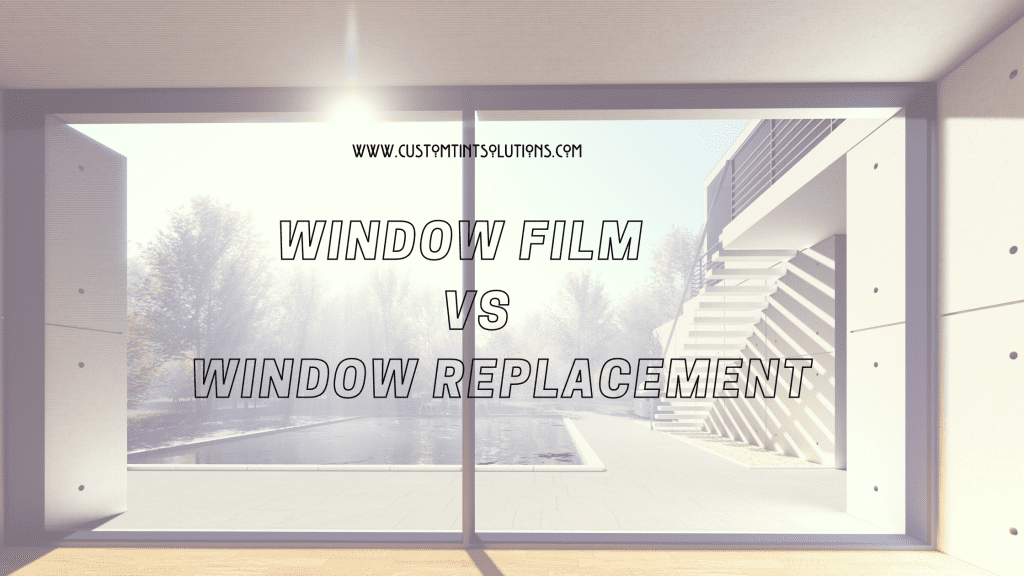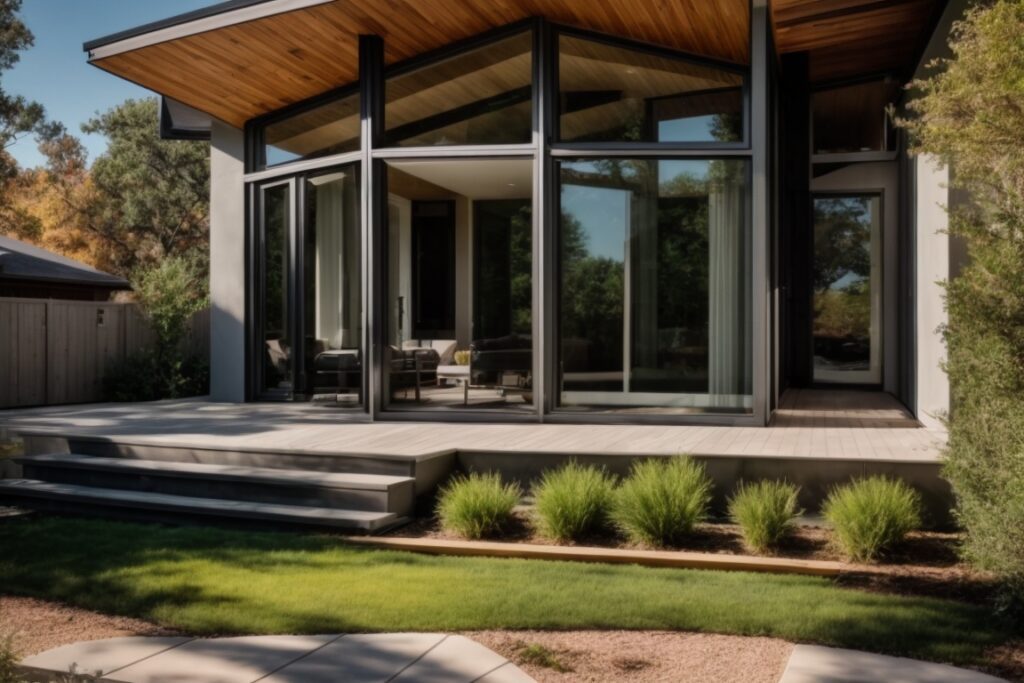

Sun-drenched skies are a near-constant in Colorado Springs, intensifying the sun’s impact due to the city’s high altitude. This geographical peculiarity results in significant energy consumption as residents and businesses strive to keep indoor spaces cool and comfortable. Recognizing this, Custom Tint Solutions provides top-of-the-line sun control window film in Colorado Springs that not only enhance comfort but also significantly improve energy efficiency. Over time, misconceptions have circulated about the use and benefits of window films, leading to some hesitancy in their adoption. We address these common myths, offering insight into why upgrading to this technology is ideal, particularly in the unique climatic conditions of Colorado Springs.
Myth 1: Sun Control Window Film Makes Interiors Too Dark
Explain the Myth: A prevalent concern among property owners is that installing sun control window film will result in a significant reduction in indoor lighting, casting interiors into perpetual dimness and affecting the ambiance or even the usability of rooms.
Debunking Evidence: Modern sun control window films are engineered to selectively filter out heat and harmful ultraviolet (UV) rays while maintaining high levels of visible light. These films come in a variety of shades and opacities, allowing for customization to balance light transmission and sun protection. Such technologies ensure that interiors remain bright and airy, negating any concern of living or working in a “cave-like” environment. Their ability to block up to 99% of UV rays while allowing up to 80% of visible light ensures that they reduce glare and protect interiors without significant darkness.
Myth 2: Window Films Don’t Really Save Energy
Explain the Myth: Some skeptics are doubtful of the energy-saving claims associated with window films, believing the impact is too marginal to justify the cost.
Debunking Evidence: Research and real-world applications demonstrate that high-quality sun control window films can significantly lower air conditioning needs by blocking a sizable portion of incoming solar heat. This translates to a measurable reduction in energy costs. In fact, studies have indicated that window films can reduce cooling costs by up to 30% in regions with intense sunlight like Colorado Springs, thus representing a significant conservation of both energy and money. Technical advancements ensure these films provide thermal insulation, reflecting indoor heat back inside during colder months, which contributes to a year-round utility cost reduction.
Myth 3: Installing Window Film Can Void Window Warranties
Explain the Myth: There is a common hesitation that applying sun control film might void the manufacturer’s warranty on windows, a concern that discourages many from making this energy-efficient choice.
Debunking Evidence: It is essential to note that most contemporary window films are specifically designed to be compatible with double-pane and even some triple-pane windows. Films approved for use on these windows don’t interfere with window warranties if installed correctly. Custom Tint Solutions ensures compliance with all manufacturers’ guidelines, guaranteeing that installations preserve both the efficacy of the film and the integrity of existing window warranties.
Myth 4: Sun Control Films Are Only Useful in Summer
Explain the Myth: Many assume that the benefits of window films are confined to the summer months when sunlight is harshest.
Debunking Evidence: While the heat-reducing features of such films are most noticeable during the warmer months, their benefits extend throughout all seasons. They help retain indoor heat when it’s cold, reduce the strain on heating systems, and protect against UV rays that can damage skin and fade furnishings all year round. The reflective properties of these films make them beneficial not only for cooling but also for maintaining comfortable and consistent indoor temperatures throughout the year.
Myth 5: Installation of Sun Control Film is Disruptive
Explain the Myth: Potential buyers might worry that the process of installing window film is long, cumbersome, and invasive to daily operations.
Debunking Evidence: Contrary to this concern, window film installation tends to be quick, typically requiring just a few hours to a full day depending on the size of the project. Custom Tint Solutions employs skilled technicians who are trained to perform installations with minimal disruption. Our process is designed to be efficient, clean, and non-invasive, ensuring that your daily routines are unaffected.
Integrating the Facts: How Sun Control Window Film Is Right for Colorado Springs
From robust UV protection and glare reduction to significant energy cost savings and minimal maintenance requirements, sun control window films represent a strategic investment for both homes and businesses in Colorado Springs. Given the unique climatic challenges of this region, incorporating advanced window film technology not only boosts energy efficiency but also enhances the comfort, functionality, and aesthetic appeal of any space.
For a personalized consultation and to explore how our innovative window film solutions can benefit your specific circumstances, contact Custom Tint Solutions at (719) 204-4240, or email us at coloradosprings@customtintsolutions.com. Discover more about our comprehensive services by visiting our website, where we delve deeper into our array of window film solutions, extending beyond sun control to meet a variety of needs.






About The Author: Mike Kinsey, Author at Custom Tint Solutions
Mike Kinsey uses his knowledge of window film products and industry innovations to help customers find simple, versatile solutions for meeting their architectural goals. As the Operations Manager for Custom Tint Solutions, he is the head of sales, customer relations, and product education and also personally oversees all window film installs from start to finish. His fifteen years of experience combined with his background in construction and project management sets him apart as an expert in his field. Mike's qualifications are extensive and are backed by certifications from 3M, EnerLogic, and AIA for continuing education.
More posts by Mike Kinsey, Author at Custom Tint Solutions